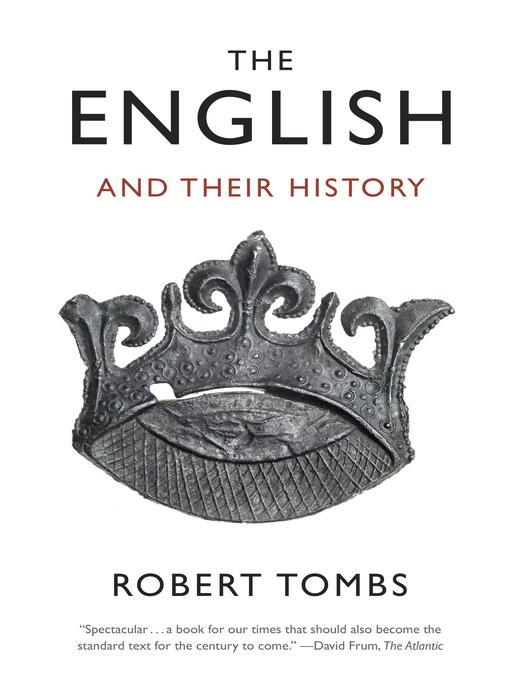- No wait, no problems
- What's new?
- Popular titles
- Check these out!
- Great Audiobooks for a Family Road Trip
- Audiobooks for the Whole Family
- See all audiobooks collections

Robert Tombs’s momentous The English and Their History is both a startlingly fresh and a uniquely inclusive account of the people who have a claim to be the oldest nation in the world. The English first came into existence as an idea, before they had a common ruler and before the country they lived in even had a name. They have lasted as a recognizable entity ever since, and their defining national institutions can be traced back to the earliest years of their history.
The English have come a long way from those first precarious days of invasion and conquest, with many spectacular changes of fortune. Their political, economic and cultural contacts have left traces for good and ill across the world. This book describes their history and its meanings from their beginnings in the monasteries of Northumbria and the wetlands of Wessex to the cosmopolitan energy of today’s England. Robert Tombs draws out important threads running through the story, including participatory government, language, law, religion, the land and the sea, and ever-changing relations with other peoples. Not the least of these connections are the ways the English have understood their own history, have argued about it, forgotten it and yet been shaped by it. These diverse and sometimes conflicting understandings are an inherent part of their identity.
Rather to their surprise, as ties within the United Kingdom loosen, the English are suddenly embarking on a new chapter. The English and Their History, the first single-volume work on this scale for more than half a century, and which incorporates a wealth of recent scholarship, presents a challenging modern account of this immense and continuing story, bringing out the strength and resilience of English government, the deep patterns of division and also the persistent capacity to come together in the face of danger.
-
Creators
-
Publisher
-
Release date
November 17, 2015 -
Formats
-
Kindle Book
-
OverDrive Read
- ISBN: 9781101874776
- File size: 116912 KB
-
EPUB ebook
- ISBN: 9781101874776
- File size: 116956 KB
-
-
Accessibility
-
Languages
- English
-
Reviews

Loading
Why is availability limited?
×Availability can change throughout the month based on the library's budget. You can still place a hold on the title, and your hold will be automatically filled as soon as the title is available again.
The Kindle Book format for this title is not supported on:
×Read-along ebook
×The OverDrive Read format of this ebook has professional narration that plays while you read in your browser. Learn more here.